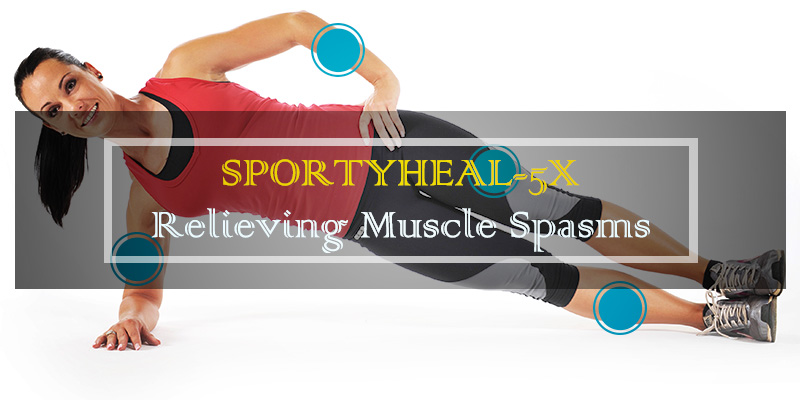Muscle spasms don’t usually rate high on the list of medical problems amongst the common folk. Most may not even realize that the cause of pain in the back, legs or joints could be a result of muscles spasms. Before we start listing down different causes or symptoms of spasms and tell you how to cure it, let’s see what this term really means.
In simple terms, muscle spasms are an involuntary contraction of muscles or a group of muscles. Though these contractions may not be harmful at times, it can be a cause of series concern when a person experiences sudden bursts of pain.
What causes a spasm?
- A spasm is usually caused by an abnormal nerve stimulation or abnormal movement of the muscle itself.
- A spasm may also occur due to overuse of a particular muscle or putting excessive strain on it.
- It can also be caused when a muscle has been overstretched or kept in the same position for a long duration of time.
- Athletes get spasms after strenuous workouts that cause an overuse of skeletal muscles.
- Another common cause of spasms is unfamiliar or unsupervised exercise. Not following the proper methods can cause spasms in abdomen, back or even the calf muscles. These often result in leg cramps which can be quite painful.
Symptoms and Signs of muscles spasms
- A muscle twitch that doesn’t seem to go away.
- Acute muscle pain in certain areas.
- Feeling bulging, tight muscle underneath the skin, in a particular part of the body that is aching.
Relieving muscle spasms
The easiest ways to relieve pain caused by muscle spasms can be massaging the affected area or applying some hot-press. Lightly stretching the muscles may also help but these activities are best done under the supervision of an expert. There is another way that is less painful as compared to massaging a muscle that hurts; a natural organic remedy, which not only relieves the pain but also suppresses the spasms.
Curcumin, nature’s best medicine, is found in abundance in turmeric.
How Curcumin is used to treat spasms?
- Muscle spasms are associated with pain and inflammation. A study on the pharmacology of curcuma longa, found that curcumin is a powerful antispasmodic. Or in vernacular terms, curcumin is extremely helpful in suppressing the pain caused by muscle spasms. Doses of turmeric that are rich in curcumin are found to be a potent muscle relaxant.
- These properties not only mirror the effects of artificial muscle relaxants but curcumin is also devoid of any harmful side effects that may be caused by pharmaceutical drugs.
- In some studies, it was also found that high doses of curcumin also treated spasms in uterus and the intestine. The results of the study reported that curcuminoids, present in high quantities in curcumin, not only controlled the spasm in the muscles, it also brings about relaxation in the muscles.
Sportyheal-5X
- An organic remedy that is usually used as a muscle relaxant, Sportyheal-5X can also work as a powerful antispasmodic. It is helpful to the sports men or women, who may be prone to facing problems in their muscles time and again.
- The treatment with this organic product can help with the stress in overworked muscles, stiffness or soreness. Since it is high in curcumin, it can easily suppress muscle spasms in athletes and help with relaxation of affected muscles.
Directions to use Sportyheal-5X
The organic remedy works with most of your delicious and healthy meals-
- It can be incorporated in soups, salads or smoothies
- It can be used to create a delicious glass of milk with honey and black pepper
It is important to add some pepper in your mix and curcumin works best when it is consumed with pepper. The combined mix of these natural herbs can be used to cure all kinds of ailments.
One may not be able to control the frequency or spasms, as they are largely caused by our day to day activities only, one can certainly keep the pain in check and keep their muscles relaxed with this organic product.
Click here to see more details : https://www.ncbi.nlm.nih.gov/pubmed/27897416

